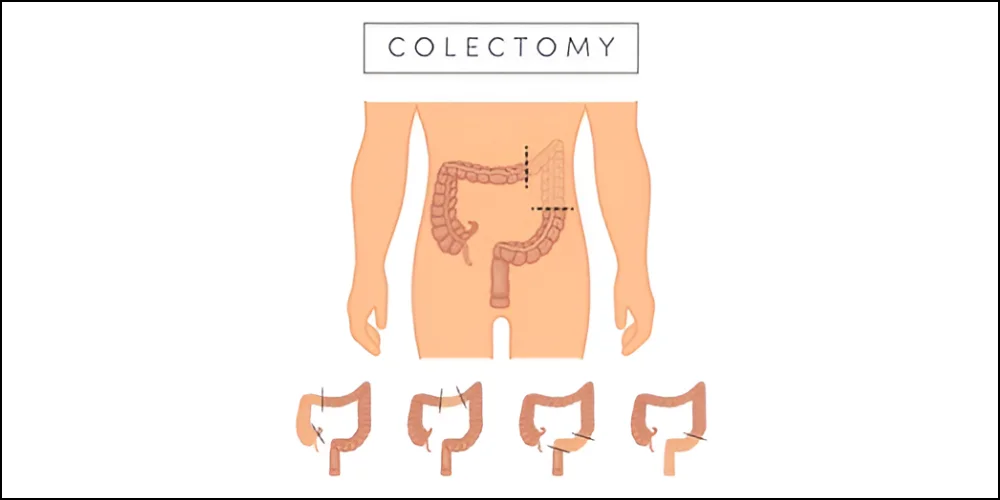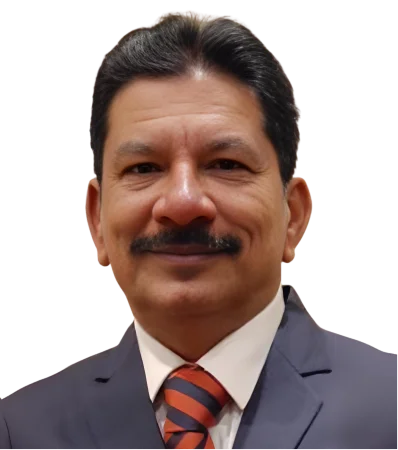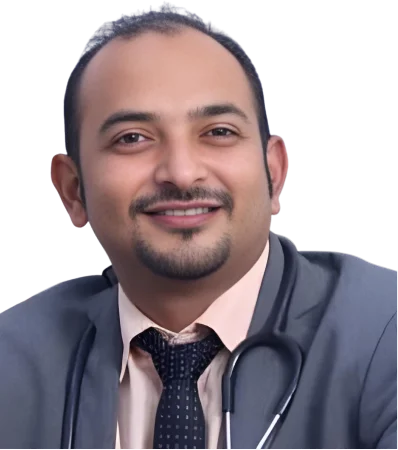Colectomy Surgery
Precision Treatment for Optimal Colon Health and Recovery
Colectomy surgery is an important procedure designed to treat a variety of diseases of the colon including cancer and inflammatory bowel diseases, or diverticulitis. The procedure involves the removal of a portion or all the colon, contingent on the severity of the illness. In Chirayu Super Speciality Hospital, we offer comprehensive colonectomy services with the latest techniques to ensure optimal results and quick recovery. Our highly skilled surgical team coupled with cutting-edge technology is dedicated to providing the best quality of medical healthcare.

What is Colectomy Surgery?
Colectomy is a procedure which involves the removal of all or a portion or all of the colon can be removed. The procedure is usually used to treat serious problems that affect the function of the colon or its health. There are a variety of types of colectomy. They include:
- Partial Colectomy : Removal of a segment of the colon.
- Total Colectomy : Removal of the entire colon.
- Hemicolectomy : Removal of half of the colon, either the right or left side.
The section that is removed from the colon is usually replaced by a portion from the small intestine, or a colostomy, based on the size of the removal and the patient’s general health.
Who Performs Your Surgery?
Colectomy surgery is carried out by highly experienced colorectal surgeons that have vast experience and extensive training operating on complicated colon procedures. Our team collaborates with gastroenterologists, oncologists along with other doctors to provide complete medical care. Every person on our staff is committed to providing individual, individualized assistance throughout the course of your treatment.
Types of Colectomy Surgery
- Open Colectomy : A traditional surgery that involves a greater cut in the abdomen to eliminate the affected part in the colon. This option may be required for more complex cases.
- Laparoscopic Colectomy : The least invasive procedure using tiny incisions as well as specially designed instruments to remove the colon. The procedure typically will result in less discomfort, a shorter recovery times, and less scars.
- Robotic-Assisted Colectomy : A more advanced type of laparoscopic surgery that makes use of robotic systems to improve the precision of surgery and improve control which results in quicker recovery and better outcomes.
Symptoms Indicating the Need for Colectomy
- Consistent abdominal cramps or pain.
- Anemia or gastrointestinal bleeding severe.
- Constipation or diarrhea that is chronic.
- Weight loss of significant magnitude or nutrition deficiency.
- The symptoms that are not controlled by a doctor can be attributed to inflammatory intestinal disorder (IBD) (also known as diverticulitis).
Diagnosis for Colectomy
Diagnosis begins with a thorough medical history and physical examination. Diagnostic tests may include:
- Colonoscopy : To visualize the colon and take biopsy samples if needed.
- Imaging Studies : CT scans, MRIs, or X-rays to assess the extent of disease and guide surgical planning.
- Blood Tests : To evaluate overall health and detect any underlying issues that might affect surgery.
Treatment Process
Colectomy surgery is done by general anesthesia. The procedure involves the removal of some or all of the colon, based on the condition in question. For an open colectomy an abdominal incision of greater size is made. Laparoscopic or robotic-assisted methods require smaller incisions using instruments that are specially designed for. After the affected area is removed then the remaining sections of the colon or the small intestinal tract are joined and a colostomy could be constructed if it is needed. The procedure typically takes between 1 and 4 hours according to the degree of complexity.
Care and Recovery After Surgery
Postoperative care involves surveillance in a recovery area where vital indicators and the progress of recovery are monitored. Patients are typically within the institution for several days or even a week dependent on what type of procedure they undergo and their the individual’s recovery. The management of pain, wound care and diet adjustments are essential for healing. It is recommended that patients begin with a moderate level of activity and gradually increase their activity as tolerated. A follow-up appointment will be scheduled to assess the healing process and ensure proper functioning of the digestive system.
Advantages of Choosing Our Surgery Services
Skilled Colorectal Surgeons
Expertise in performing colectomy for conditions like colorectal cancer and diverticulitis.
Laparoscopic Colectomy Options
Minimally invasive techniques offer less pain and faster recovery.
Comprehensive Care Coordination
Multidisciplinary approach for preoperative planning, surgery, and postoperative care.
What Our Patients Say
Read about our patients positive experiences and how Chirayu Super Speciality Hospital has positively impacted their health and well-being.


I’m grateful for the expert care provided during my colectomy. The team’s professionalism and support were outstanding.


From the initial consultation to follow-up care, the team provided exceptional support and made me feel at ease.


I opted for laparoscopic colectomy, and I’m amazed at how quickly I recovered with minimal discomfort.


The colectomy at Chirayu was life-changing. The team’s expertise and care made all the difference in my recovery.
Meet Our Medical Specialists
Our skilled colorectal surgeons offer expert colectomy care, utilizing advanced techniques for effective treatment and optimal recovery.
Frequently Asked Questions
Here, we provide answers to some of the most commonly asked questions to help you better understand about our surgery services. If you have any additional questions, please do not hesitate to contact us.
Types include open colectomy, laparoscopic colectomy, and robotic-assisted colectomy, each with its own benefits and recovery profiles.
Surgery is recommended for severe conditions affecting the colon that do not respond to other treatments or for cancer.
Recovery time varies but typically involves a hospital stay of a few days to a week, with full recovery taking several weeks.
Colectomy surgery involves the removal of part or all of the colon to treat conditions like cancer, IBD, or diverticulitis.
The duration varies but generally lasts between 1 to 4 hours, depending on the complexity and extent of the surgery.



